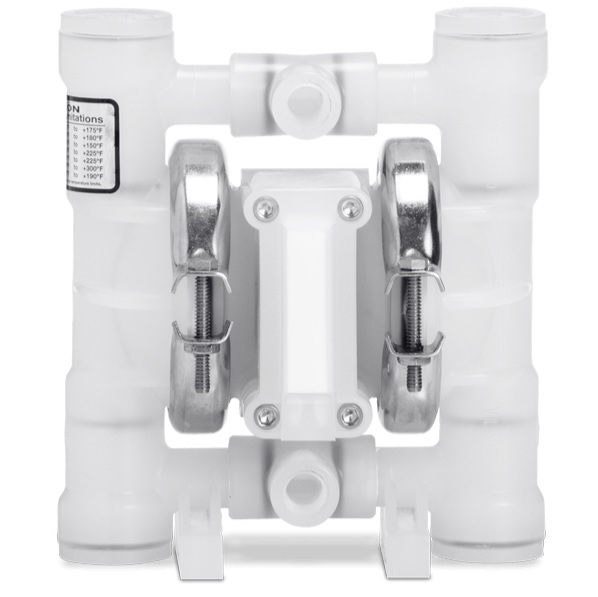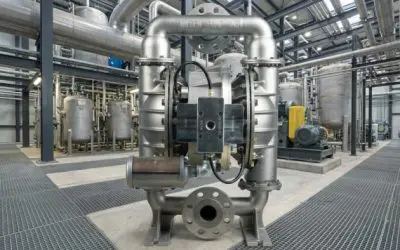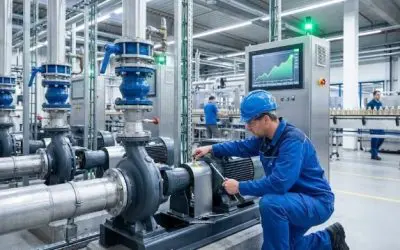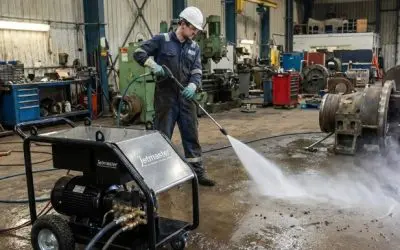
What is a Pneumatic Pump?
A pneumatic pump is a fluid transfer device powered by compressed air instead of electricity or hydraulics. These pumps are commonly used in industrial environments where reliability, enhanced safety, or non-electric operation is required, such as in hazardous zones or remote areas.
How Does a Pneumatic Pump Work?
Pneumatic pumps operate by directing compressed air into the working chamber of the pump, typically through a diaphragm or piston. This air pressure drives the internal mechanism, pushing the liquid out of the pump. Once the pushing cycle is complete, the airflow shifts to the opposite side, returning the mechanism to its original position, ready for the next cycle. This process repeats continuously as long as compressed air is supplied.
Advantages of Pneumatic Pumps in Industrial Applications
1. No Electricity Required
These pumps are ideal for hazardous or remote locations where electrical installations are not feasible—such as explosive environments or outdoor sites.
2. Self-Priming Capability
Pneumatic pumps can draw fluid without being fully primed, making them highly versatile across various industrial applications.
3. Handles Challenging Fluids
Well-suited for pumping high-viscosity, corrosive, or even particle-laden fluids. Their flexibility makes them applicable to a wide range of process needs.
4. Simple Flow Regulation
Flow rate can be easily adjusted by varying the air pressure or opening/closing valves—no need for complex electronic control panels.
5. Easy Maintenance
Their simple design makes pneumatic pumps easy to clean and maintain, helping reduce downtime and maintenance costs.
6. Safe and Hygienic Operation
Using clean air as the power source minimizes contamination risk, making them ideal for food, pharmaceutical, and other hygiene-critical industries.
Disadvantages of Pneumatic Pumps
-
Generally lower energy efficiency compared to electric pumps due to the high energy demand of air compressors.
-
Fluid flow can pulsate if not equipped with a dampening system.
-
Limited pressure output, making them less suitable for ultra-high-pressure requirements.
-
Can be noisy and sensitive to air quality.
Industrial Applications
Pneumatic pumps are widely used in chemical processing, food and beverage, pharmaceuticals, water treatment, and manufacturing. Their ability to handle aggressive fluids and operate without electricity makes them a top choice for critical processes.
Popular Types of Pneumatic Pumps
-
Diaphragm Pumps: The most common and versatile; ideal for chemicals, slurries, and viscous fluids.
-
Piston Pumps: Used in high-pressure applications or for precise fluid dispensing.
-
Peristaltic Pumps: Offer hygienic, contamination-free transfer of sterile fluids.
Pneumatic pumps provide a safe, flexible, and low-maintenance solution for modern industrial pumping needs. By choosing the right type and specification, these systems can be a reliable long-term asset across various production lines.
Discover high-quality industrial pumps and technical solutions only at Winston Indonesia! Enjoy expert consultation, product testing, and reliable after-sales support tailored to your pumping needs.



